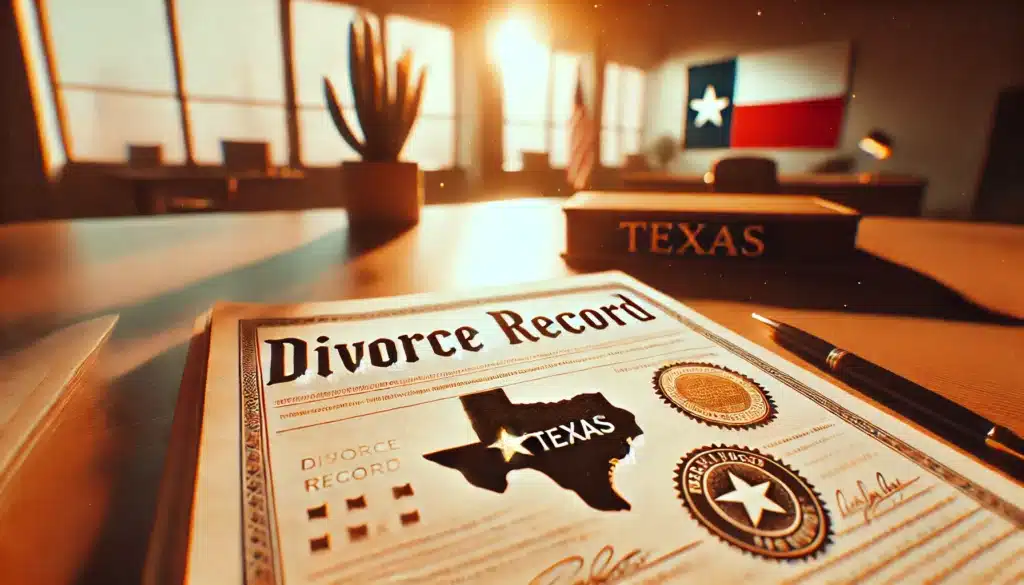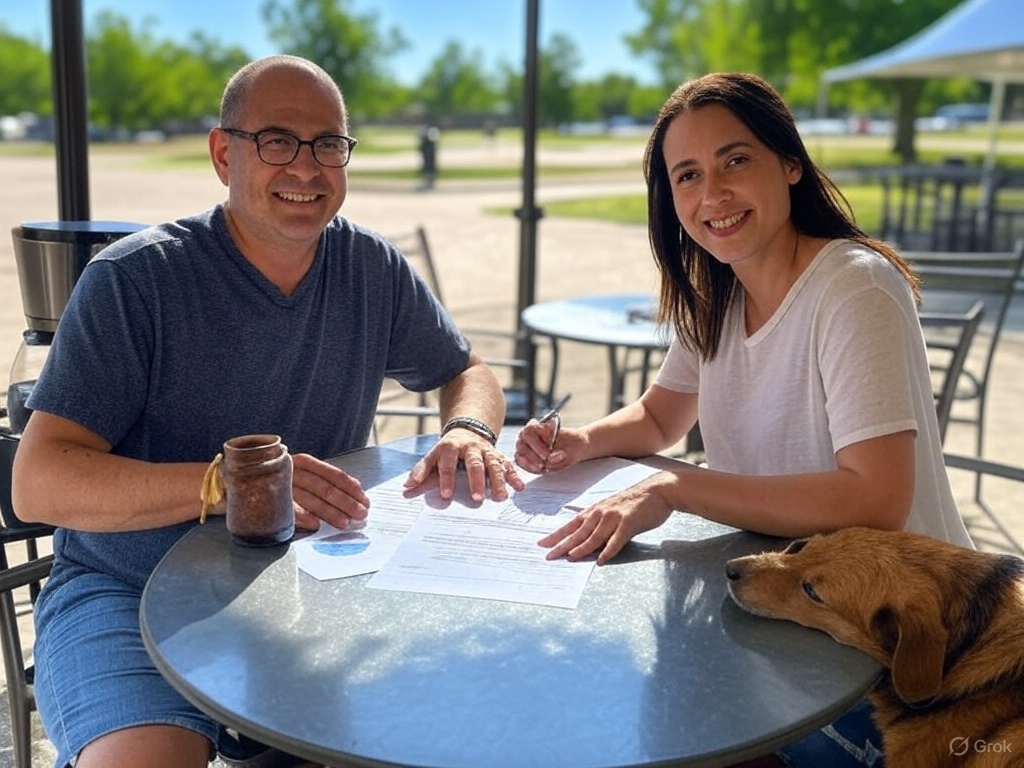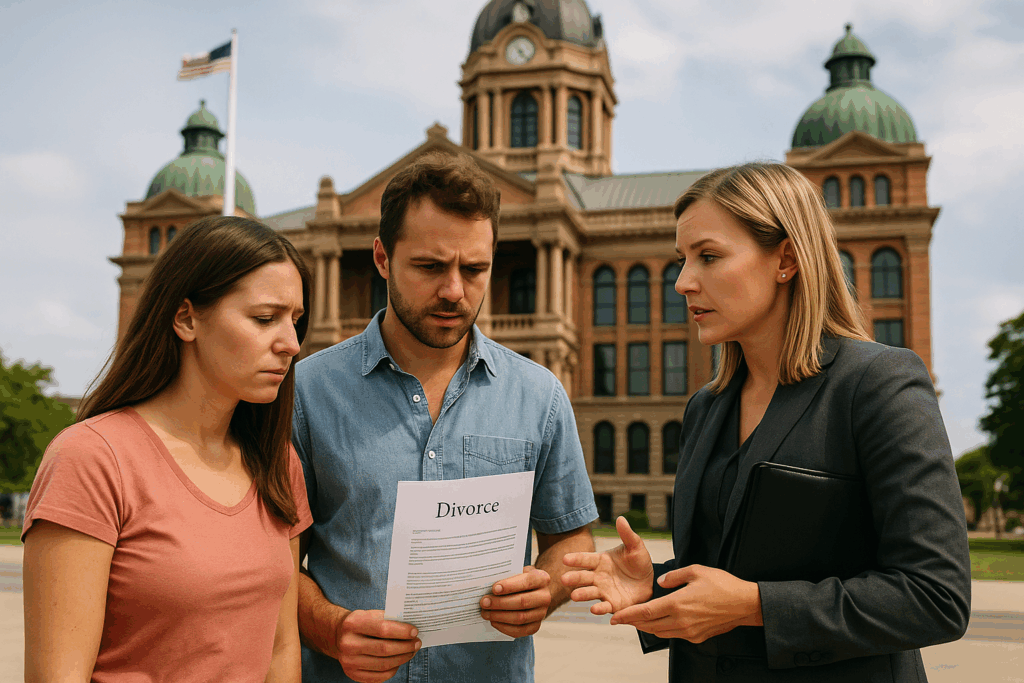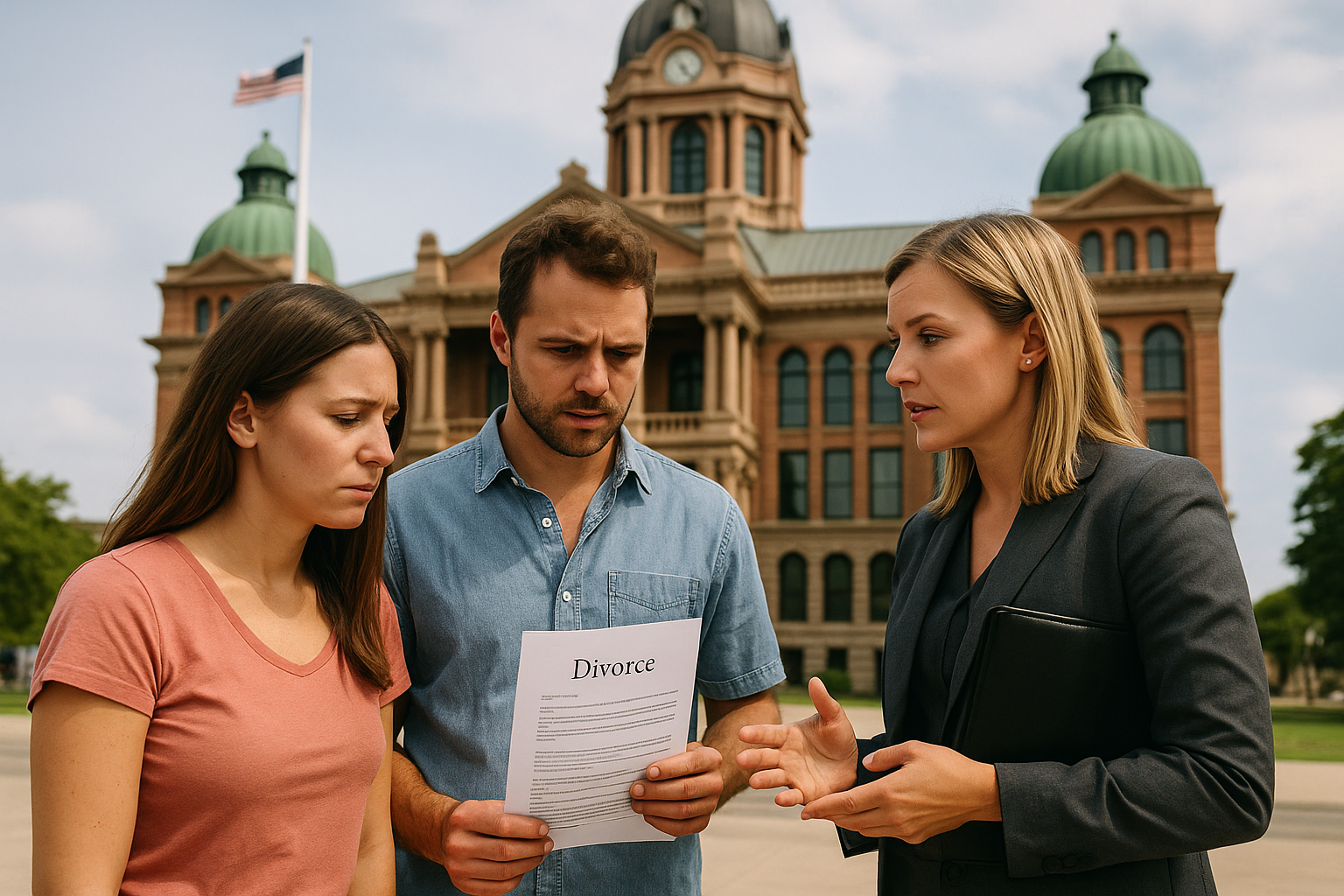
Filing an Uncontested Divorce in Texas: Essential Steps and Considerations explains the legal process in clear terms so couples know what to expect before starting. Divorce is never simple but when both spouses agree on every major issue the path forward becomes less stressful.
By preparing carefully, following court rules and keeping agreements fair, couples move through the process with confidence. This guide expands on each stage of the journey, from the first filing to life after the decree and provides a structured overview that reduces confusion.
Understanding the Concept of Uncontested Divorce
An uncontested divorce takes place when both spouses reach full agreement on important matters. These matters include the division of assets and debts, decisions about child custody and visitation and arrangements for financial support. Because there are no disputes the process is quicker and less expensive than a contested case. Courts welcome uncontested divorces because they demand fewer hearings and less judicial involvement.
However, the process still requires careful preparation and compliance with state law. Every form must be accurate, every deadline must be met and every agreement must reflect legal standards. Uncontested does not mean effortless and attention to detail remains vital.
Residency and Filing Eligibility
Before filing spouses must confirm that they meet Texas residency requirements. At least one spouse must have lived in Texas for six months before filing and that same spouse must have lived in the county of filing for ninety days. These rules ensure that the court has authority to decide the case.
If you fail to meet residency requirements the court will dismiss the petition and you will need to wait until the time limits pass. Residency rules may seem straightforward but mistakes at this stage cause costly setbacks. Confirming eligibility early creates a solid foundation for the entire case.
Preparing Records and Financial Information
Preparation before filing saves time and money later. Couples should gather tax returns, pay stubs, bank statements, property deeds, mortgage papers and retirement account details. Parents must also prepare school records, medical information and schedules related to children. Complete and organized records help attorneys, mediators and courts evaluate agreements. They also reduce disputes and speed up drafting of the final decree.
Failing to prepare leads to confusion, inaccurate paperwork and even rejection by the court. Taking time to organize documents early ensures that the divorce progresses smoothly. Filing an Uncontested Divorce in Texas: Essential Steps and Considerations emphasizes that strong preparation prevents problems before they arise.

Filing the Original Petition
The divorce begins with the filing of the Original Petition for Divorce. This document identifies the parties, states the grounds for divorce and outlines the requested outcomes. Filing takes place in the district court of the county where residency rules are met. Court filing fees usually range from $250 to $350 depending on location.
Once filed, the petition becomes part of the court record and the case is officially open. Accuracy at this stage is critical since errors or omissions can delay proceedings. A clear petition frames the rest of the process and establishes the expectations of the petitioner.
Serving the Other Spouse
After filing the petitioner must notify the respondent. In uncontested cases service often takes place through a waiver. The respondent signs a notarized waiver of service to confirm receipt and waive formal delivery. If the respondent does not sign a waiver, service must be completed by a sheriff, constable or licensed process server.
When the respondent cannot be located, courts may allow service by publication. Proper service ensures fairness and due process. Without it the case cannot move forward. Service appears simple but it remains one of the most important steps in any divorce process.
Response and Participation
The respondent has a legal right to participate. In most uncontested cases the respondent signs the waiver and cooperates with the petitioner to finalize agreements. Some respondents choose to file a formal answer which confirms involvement and protects legal rights. Failure to respond may result in a default judgment in favor of the petitioner.
Active participation ensures that both spouses remain engaged and that agreements reflect shared decisions. This stage supports fairness and prevents one-sided outcomes. Cooperation is the cornerstone of uncontested divorce and proper response procedures make that cooperation official.
Temporary Orders for Stability
Divorce can take several months, even in uncontested cases. During this time temporary orders help maintain stability. Temporary orders address who lives in the marital home, who pays bills, temporary custody schedules and temporary support obligations. Couples who agree on temporary orders may submit them to the court for approval.
If disagreements arise the court will hold a hearing. Temporary orders remain in effect until replaced by the final decree. These orders reduce conflict, provide structure and protect both spouses and children during the waiting period.

Discovery in Limited Cases
Discovery, the process of exchanging information, is rare in uncontested divorces but may still occur. Spouses may share records informally to confirm that all financial information is accurate. In contested cases discovery involves written questions, requests for documents and depositions.
In uncontested divorces this stage is minimal but important when complex assets or debts exist. Even limited discovery ensures transparency and fairness. By sharing information openly couples protect themselves from future disputes and support trust in the agreements they create.
The Waiting Period
Texas law requires a sixty-day waiting period after the petition is filed before the court can finalize the divorce. This waiting period gives spouses time to reflect, confirm agreements and prepare the final decree. While exceptions exist in cases of family violence, most couples must wait the full sixty days.
The waiting period is not wasted time. Couples use it to resolve remaining details, complete paperwork and ensure that agreements comply with state law. Patience during this stage prevents rushed decisions and strengthens the foundation of the final decree.
Mediation for Unresolved Issues
Even when spouses agree on most issues, some details may require mediation. Mediation brings in a neutral third party to help couples find solutions. The mediator does not decide the outcome but guides discussion until agreements are reached. Mediation is less formal than court hearings and usually costs less than litigation.
Agreements reached in mediation are added to the final decree once approved by the court. Mediation preserves cooperation and helps couples finalize details without turning the case into a contested matter.
Drafting the Final Decree
The Final Decree of Divorce is the most important document in the process. It includes all agreements about property, debts, custody, visitation and support. Both spouses must review and approve the decree before it is presented to the court. Judges review decrees carefully to ensure compliance with Texas law.
Once signed the decree becomes a binding legal order. Errors in the decree create confusion and may lead to costly disputes in the future. Careful drafting and thorough review ensure that the decree reflects both the agreement and the law.
The Final Hearing
Courts require at least one spouse to attend a final hearing. During this short session the judge reviews the petition, agreements and final decree. The judge may ask brief questions to confirm that the agreement is fair and voluntary. If everything meets legal standards the judge signs the decree and the marriage officially ends. Final hearings in uncontested divorces are usually brief but they mark the most important step in the process. This hearing provides closure and transforms agreements into enforceable orders.
Life After Divorce
Finalizing the divorce is only the beginning of life after marriage. Spouses must update names on financial accounts, adjust insurance policies and change beneficiary designations on retirement plans. Parents must follow custody schedules and comply with support obligations. Budgeting becomes critical when moving from shared to single income.
Estate planning documents such as wills and powers of attorney also require updates. These changes prevent confusion and protect financial security. Filing an Uncontested Divorce in Texas: Essential Steps and Considerations highlights that planning for life after divorce is as important as the divorce itself.
Costs and Budgeting
Uncontested divorces cost less than contested cases but they are not free. Filing fees, notary charges, document preparation and attorney fees all contribute to the total expense. Some couples may also face costs for mediation, certified copies of the decree or filing documents to transfer property titles.
Creating a budget for these expenses prevents financial strain. While some couples choose to proceed without attorneys, professional guidance often saves money in the long run by avoiding errors. Planning ahead ensures that the divorce remains affordable and predictable.
| Expense Type | Details |
| Court Filing Fees | Range between $250 and $350 depending on the county. |
| Attorney Fees | Flat or hourly rates; optional but often prevent costly errors. |
| Mediation Costs | May apply if needed to resolve small disputes; usually less than litigation. |
| Administrative Costs | Includes notary charges, certified copies, mailing, and property transfers. |
Strategies for Success
Couples can take practical steps to make divorce easier. Staying organized prevents missed deadlines. Respectful communication reduces stress and keeps cooperation strong. Using mediation to resolve small disputes avoids escalation and saves money. Seeking limited legal advice provides clarity without requiring full representation. Using the waiting period wisely ensures that everything is ready for the final hearing. By applying these strategies couples protect their rights and move forward smoothly.

Final Thoughts
Divorce brings legal, financial and personal challenges but preparation and cooperation reduce the burden. From filing the petition to signing the final decree, every step requires accuracy and attention to detail. Professional guidance improves outcomes but even couples who manage the process themselves must follow court rules carefully.
Filing an Uncontested Divorce in Texas: Essential Steps and Considerations demonstrates that informed decisions, discipline and fairness create a smoother path. The steps you take today shape your financial security, your family stability and your peace of mind for years to come. By approaching divorce with clarity and preparation you move into the next stage of life with confidence.
Other Related Articles:
- Uncontested Divorce in Texas: When Does Filing Make Sense?
- Step-by-Step Guide to Filing an Uncontested Divorce in Texas
- How Online Divorce Filing Works for Uncontested Divorces in Texas
- The Journey of an Uncontested Divorce in Texas from Filing to Finalization
- How to File for a Divorce in Texas: The Complete Guide
- The Beginner’s Guide to the Cost of an Uncontested Divorce in Texas
- How the Cost of a Divorce Attorney in Texas Could Affect Your Future
- Understanding How Long an Uncontested Divorce Takes in Texas Through Real Cases
- How Long Does an Uncontested Divorce Take in Texas? What to Consider for Your Situation
- How Long After a Divorce Can You Remarry in Texas? Important Facts Every Texan Should Know





